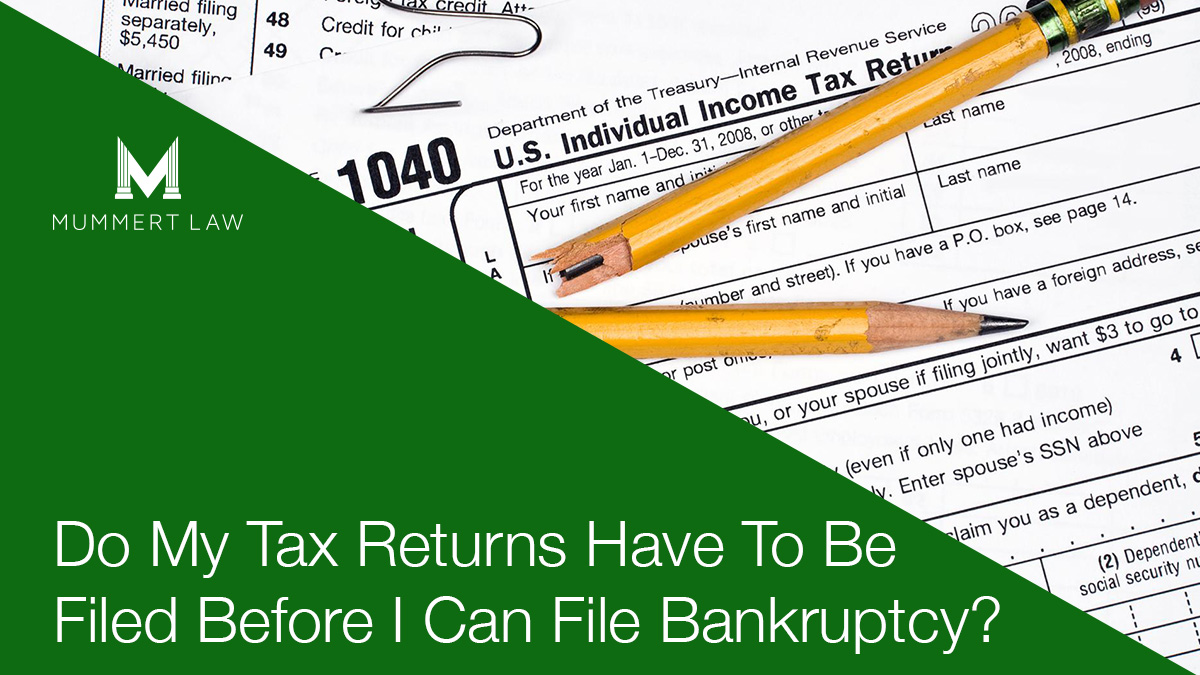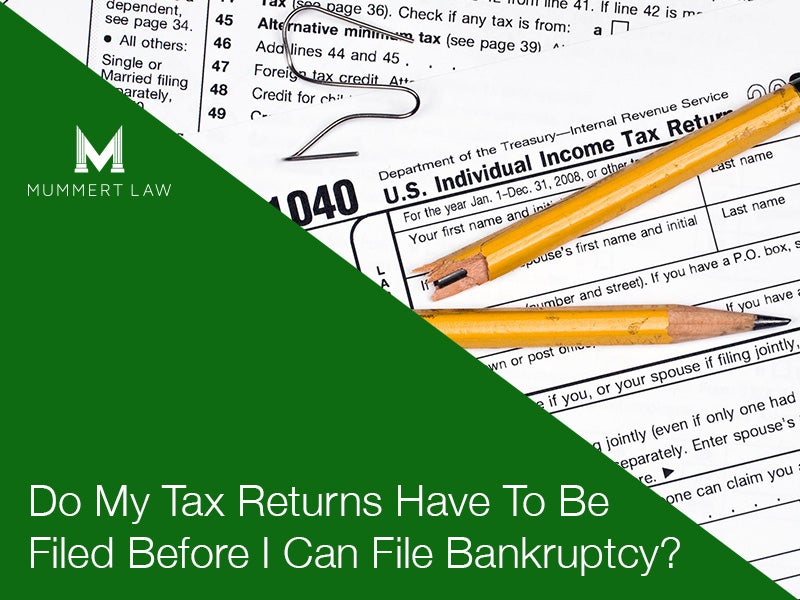Do My Tax Returns Have To Be Filed Before I Can File Bankruptcy?


Filing for bankruptcy without filing your tax returns can lead to many questions. One is whether you need to file your tax returns before bankruptcy. We’ll share key insights to help answer your questions so you can make the best decision for yourself and your family.
Chapter 7 Bankruptcy
Chapter 7 is designed to discharge most, if not all, of your debt in exchange for your property.
Your Tax Returns Don’t Have To Be Current with Chapter 7
There isn’t a rule stating that your tax returns must be current upon filing Chapter 7. However, you must provide your assigned trustee with a copy of your last filed return and accurate financial information. Your trustee will verify if your tax returns support the financial information you provided.
Suppose you filed your most recent return longer than the year before your bankruptcy. In that case, your trustee might ask for an explanation. A valid reason could include not working the year prior. However, the bankruptcy court could deny or discharge your bankruptcy filing if you aren’t honest or if you are missing information.
When Your Tax Returns Aren’t Current
If your tax returns aren’t current, any of your unfiled tax debts won’t be discharged. The Trustee may also take action requiring the filing of the tax returns to claim your tax refunds as an asset of the bankruptcy estate.
Chapter 13 Bankruptcy
The intent of Chapter 13 is for you to reorganize your debt. As a result, you can keep your valuable property (e.g., your house and cars) while paying off what you can over time. The repayment plan is typically set for three to five years.
Your Tax Returns Must Be Current When Filing Chapter 13
Unlike Chapter 7, your tax returns must be current when filing Chapter 13. Before the court approves your repayment plan, you must provide copies of your tax returns for the four most recent years. You must submit these to your appointed trustee before the 341 meeting of creditors. Suppose you aren’t required to file a tax return. In that case, you may have to submit a letter, affidavit, or certification with an explanation.
When Your Tax Returns Aren’t Current
You could impede your case if you haven’t filed your most recent tax return before your 341 meetings.
- Your trustee will file a motion, providing you with a short period to file your taxes and submit your returns. Upon missing the deadline, the court could immediately dismiss your case.
- The Internal Revenue Service may file a substitute return, estimating the amount you owe based on your previous income. These estimates could be higher than what you typically owe upon filing your taxes. This will result in problems in confirming your Chapter 13 Plan.
Remaining Current on Tax Returns After Filing Chapter 13
Because paying back your debt occurs over several years in Chapter 13, it’s essential to remain current on your tax returns. Your trustee will require your local, state, or federal returns each year of the repayment plan process. If your returns become delinquent, your case could be dismissed.
Whether you’re filing Chapter 7 or Chapter 13, we at Mummert Law recommend being current with your tax returns. Being up-to-date causes fewer potential hindrances to your case. You’ll have a better opportunity to attain a fresh financial start. Although it can be challenging, we can help you discover the right option for you and your family. We’re available for a consultation. We’ll sit down together, evaluate your position, and determine how to proceed. So don’t go it alone when it comes to bankruptcy. Make your appointment with Mummert Law today!

